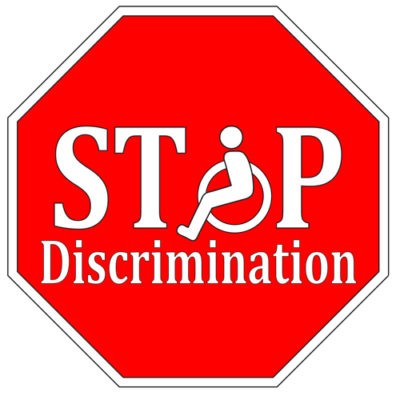Hire a Disability Discrimination Attorney in Bronx, NY
People with disabilities deserve equal employment opportunities. Laws are in place that include provisions that prohibit discriminating against people with disability at the workplace. The Americans with Disability Act (“ADA”), New York State Human Rights Law (“NYSHRL”), and New York City Human Rights Law (“NYCHRl”) are designed to help ensure that people with disabilities are not denied employment opportunities due to their disabilities. Unfortunately, even with this legislation and impressive statistics such as 19.3% employment for people with disability in 2019, discrimination in the workplace still exists in Bronx, NY, because employees do not know their rights.

What Does Disability Discrimination Mean?
While workplace discrimination refers to general unfair unemployment actions, disability discrimination includes undesirable, offensive conduct that violates a person living with a disability’s dignity. These acts may also instigate a hostile work environment. Disability discrimination may take forms. For example, it can be when a disabled worker is:
- Denied reasonable accommodation
- Terminated based on disability
- Overlooked during a promotion
- Denied a job interview
- Reassigned or transferred to a less desirable job
- Underpaid or denied bonuses awarded to the disabled
- Terminated after becoming disabled
- Not provided additional equipment to accommodate an employee with specific disabilities
- Denied reasonable breaks for an employee with a disability to take medications.
What is Reasonable Accommodation?
According to the ADA provisions, an employer must ensure that they provide reasonable accommodations. The legislation targets employees that require adjustments in the workplace to perform their duties effectively. They include those with mental and physical limitations. Reasonable accommodation can take forms such as:
- Amending company policies
- Buying new equipment
- Modifying facilities to ensure they are accessible to employees with disabilities
- Including provision for additional breaks for the disabled
- Allowing flexible work schedules for the disabled employees.
Evidence of Disability Discrimination
While most people believe that they need direct evidence to prove that an employer has discriminated against them based on disability, they are wrong because circumstantial evidence is admissible in court. Therefore, establishing disability discrimination in your workplace requires a profound understanding of the court process in analyzing evidence besides admissible proof.
Direct Evidence: This is a rare form of evidence that may include direct derogatory comments in a letter or an email that shows that an employer fired an employee due to their disability. Such evidence conclusively proves discrimination at the workplace based on disability.
Circumstantial Evidence: Such proof utilizes inference to connect an employee’s action to disability discrimination. It may include the following:
- The length of time between an adverse action by an employer and the time such employer discovered information about one’s disability
- Evidence of selective treatment between disabled employee and their non-disabled counterparts
- Evidence that one qualified person was passed over in an appointment or promotion because of their disability.
Get Free Disability Discrimination Attorney Consultation in Bronx, NY Today!
Our Bronx attorney will analyze your case individually to determine if the evidence you present amounts to disability discrimination at the workplace. Do not hesitate to schedule a free disability discrimination attorney Consultation in the Bronx for legal direction regarding your claim.
Experienced Bronx attorneys at The Law Offices of Delmas A. Costin, Jr will help you file discrimination charges at the U.S. Equal Employment Opportunity Commission (EEOC), The New York State Division of Human Rights and the New York City Commission of Human Rights. or sue your employer in court. Contact us today, and we will explain the disability employment laws to help you understand your rights.




